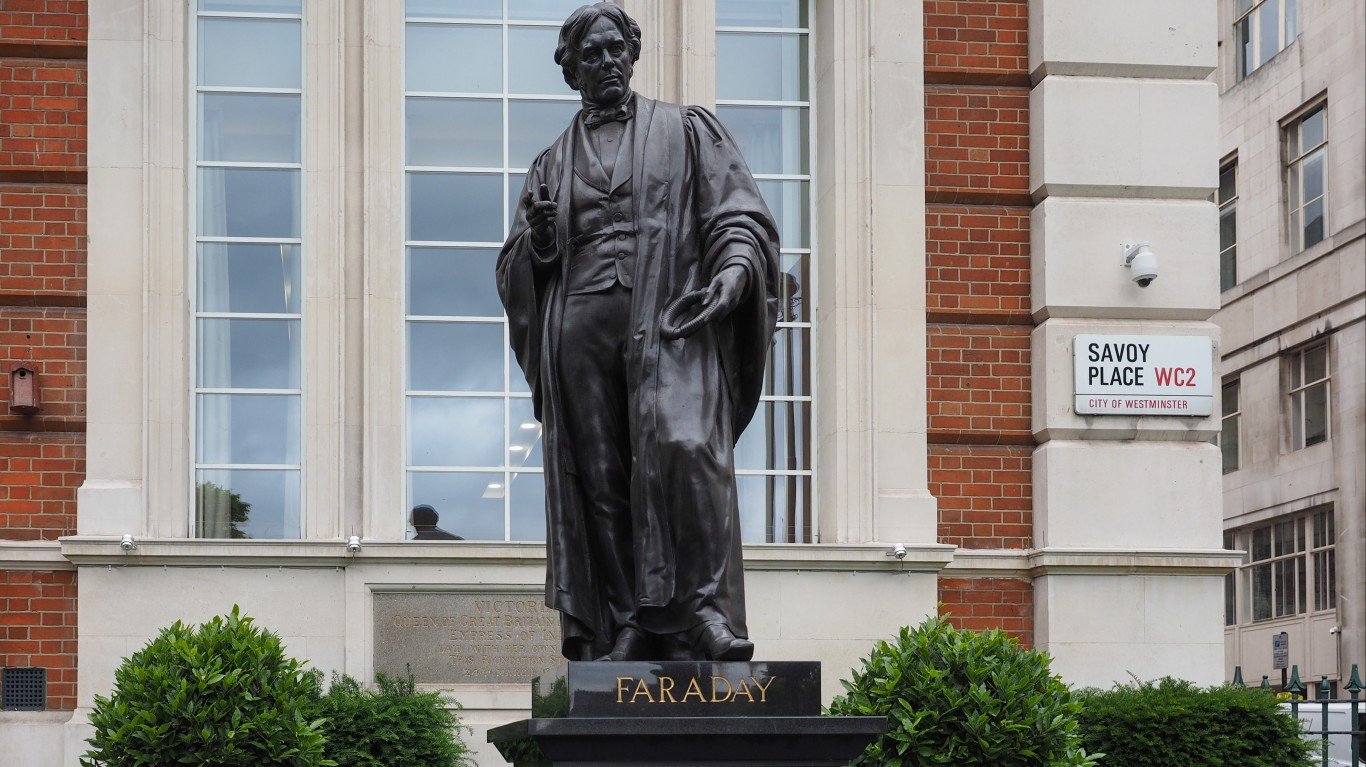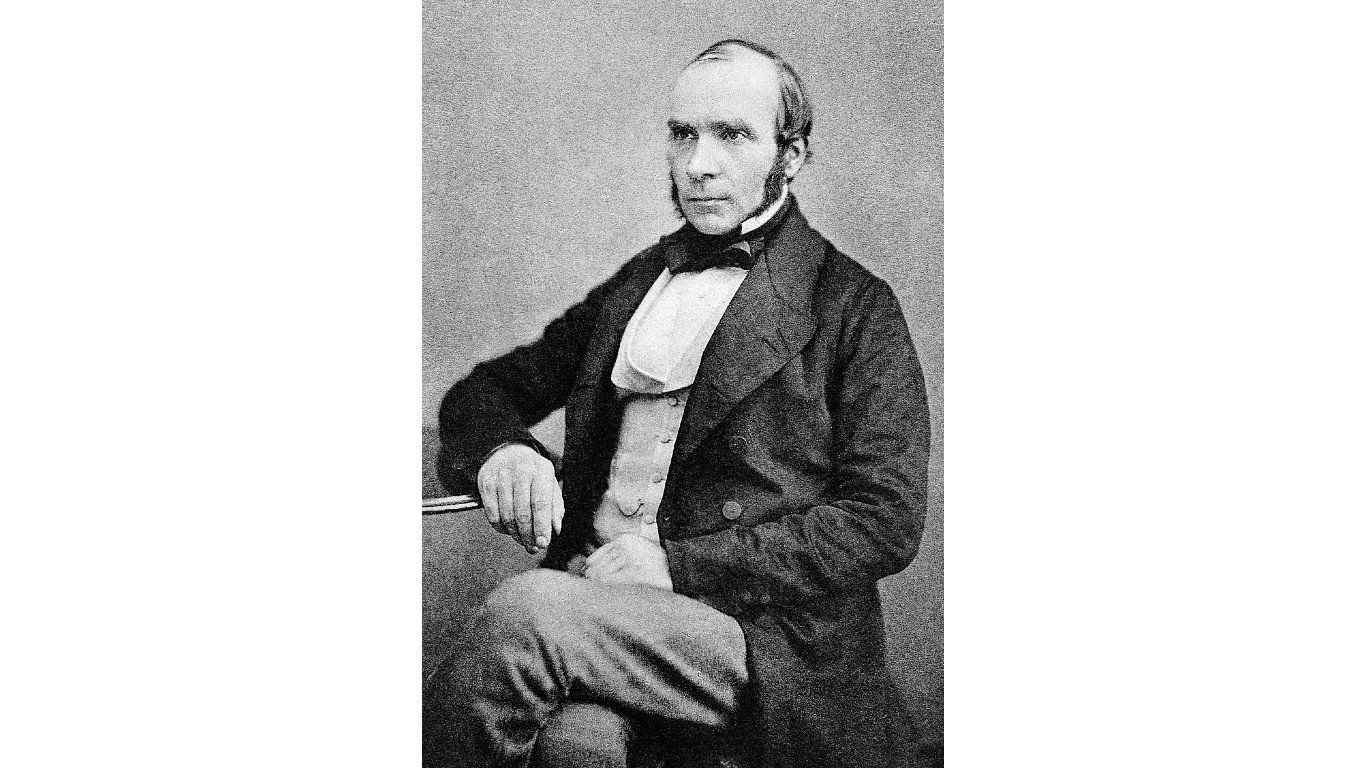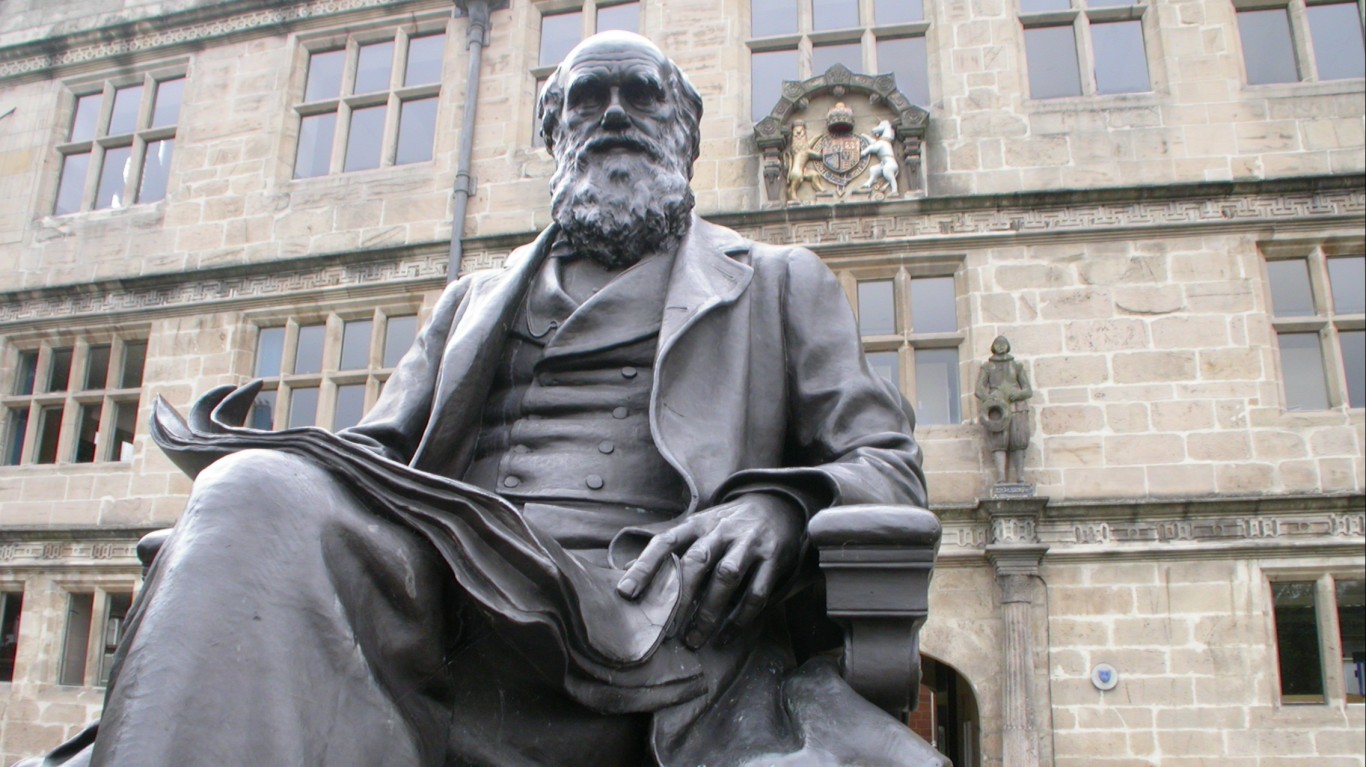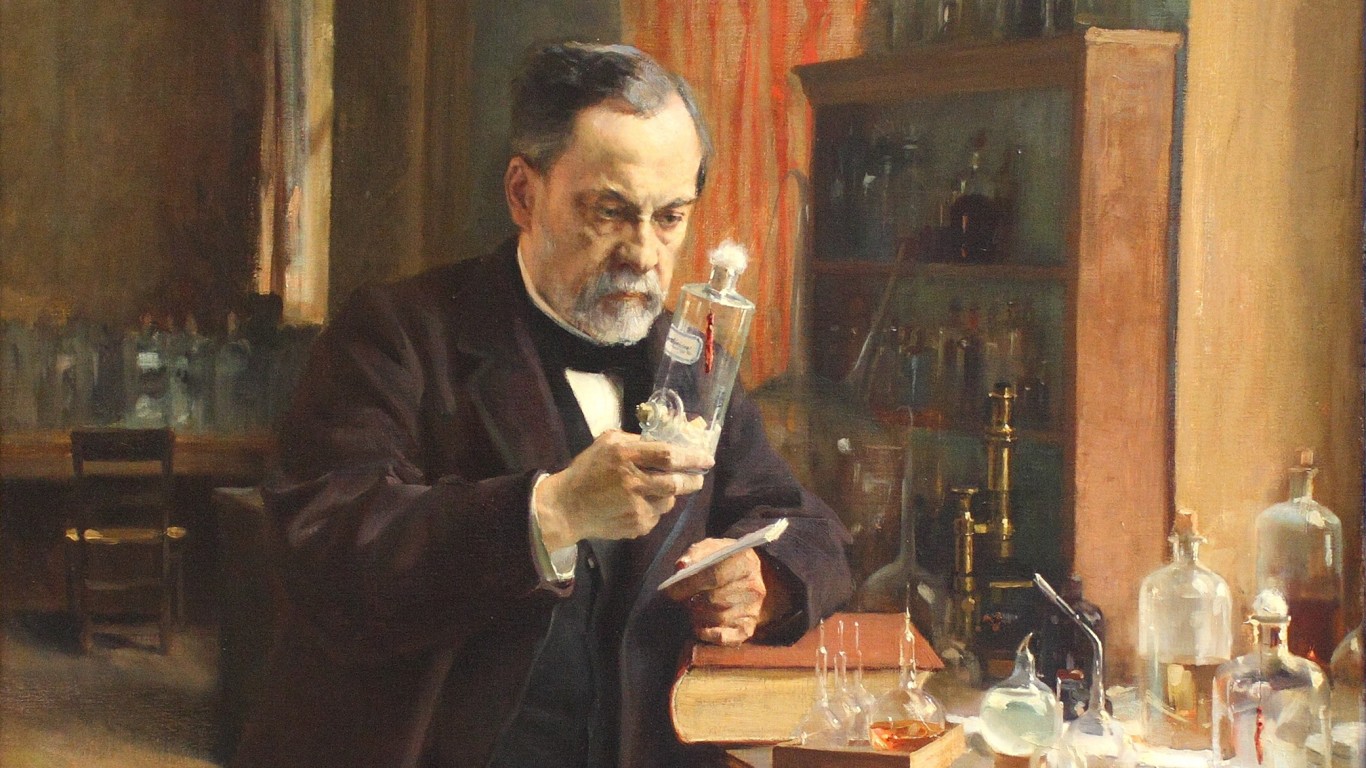
Electromagnetic induction
> Year of discovery: 1831
> Person(s) involved: Michael Faraday
Michael Faraday was an English scientist who made countless contributions to the fields of electrochemistry and electromagnetism. One of the most significant was his discovery of the principles of electromagnetic induction, the current produced by a changing magnetic field – key to the functioning of electric motors, transformers, and generators. (Party-givers should also thank Faraday for having invented the plastic balloon, which he used for scientific experiments.)

Origin of cholera
> Year of discovery: 1854
> Person(s) involved: John Snow
John Snow, not to be confused with the “Game of Thrones” character of the same name, is considered the founder of epidemiology. By pinpointing cholera cases on a map of London, Snow found that clusters were popping up around a water pump on Broad Street. This pump drew from a dirtier source than those where cholera case counts were lower, indicating that contaminated water – not “bad air” as the common wisdom of the time had it – was responsible for transmitting the disease.

Greenhouse effect
> Year of discovery: 1856
> Person(s) involved: Eunice Foote
Eunice Foote was the first scientist to pen a paper on the phenomenon of global warming. Foote, a scientist and womens’ rights activist, determined that atmospheric gasses would heat up when exposed to sunlight, leading to an increase of carbon dioxide and global temperatures, and climate change.

Evolution by natural selection
> Year of discovery: 1858
> Person(s) involved: Charles Darwin
Natural selection is the process by which species who are better suited to their environment survive and produce similarly suited offspring, while species with less favorable attributes die out. Charles Darwin came up with this origin theory through his species observations on the Galapagos Islands. His views on evolution gave rise to new fields of biology, and enhanced the understanding of our origins.

Germ theory
> Year of discovery: 1861
> Person(s) involved: Louis Pasteur
Scientist Louis Pasteur’s name is remembered in the renowned Institut Pasteur in Paris and the process of pasteurization, which makes milk safe to drink. Pasteur connected microorganisms to both fermentation and disease – positively impacting the wine and beer industries and, more important, legitimizing the germ theory of disease. Pasteur also created vaccines against rabies, anthrax, and fowl cholera.





